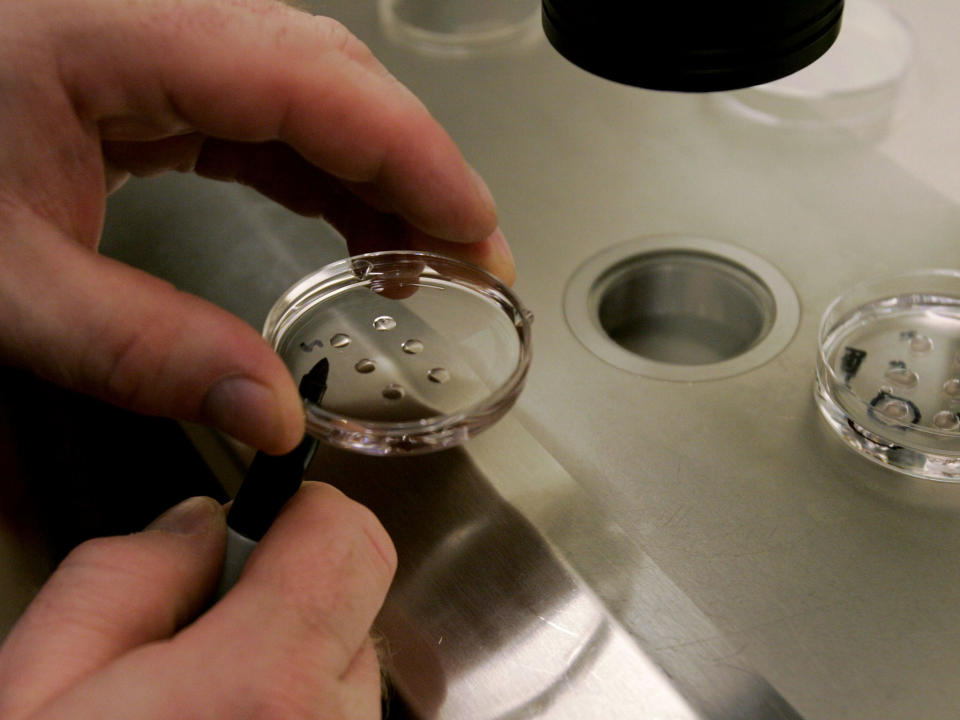First human cells grown in sheep embryos in organ donation breakthrough

Scientists say they have grown sheep embryos containing human cells, marking a significant step towards cultivating human organs in animals.
It is hoped growing the body parts in animals could not only reduce transplant waiting lists, but could also lower the transplant rejection rates because they could be grown with a patient's own cells.
Scientists have long attempted to grow organs of one species inside another and have previously successfully grown a rat pancreas inside a mouse.
Last year, scientists from the University of California created human-pig hybrid embryos in which about one in every 100,000 cells was human.
The same team this week announced they had achieved similar sheep embryos, in which around one in every 10,000 cells was human.
The scientists say they are already able to genetically modify pig and sheep embryos so the animals are unable to develop a pancreas. The hope is that implanting human cells in such embryos would result in the animal growing a human pancreas.
The embryos are currently only allowed to develop for 28 days and researchers say they would like to extend the deadline to get a better idea of how the cells go on to specialise.
“We have already generated a mouse pancreas in rats and then transplanted those in to a diabetic mouse and were able to show almost a complete cure without any immunosuppressants,” Dr Hiro Nakuachi, who is leading the research, told the American Association for the Advancement of Science in Austin, Texas.
“When it comes to human-sheep it seems more difficult. So we would like to proceed a little longer and this time use organ-deficient embryos.
“It could take five years or it could take 10 years but I think eventually we will be able to do this.”
Certain organs in pigs and sheep are similar in size to those in humans, making them suitable animals on which to carry out the tests.

 Yahoo News
Yahoo News 